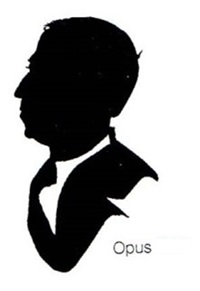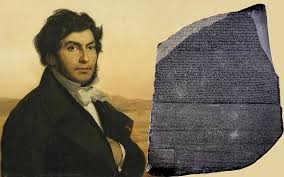2023 | Volume 24 | Issue 5

OP – LXXXIII (83)
Author: Associate Professor Felix Behan
Thanks to Vernon Marshall, who sent me his list of epithets, adages and paraphrases compiled at the Department of Surgery, Monash University and unpublished to date. This article is an attempt to reawaken and acknowledge such collated wisdom.
What is the value of quoting a quote? It is synopsising a person’s mind and experiences of their acquired knowledge. Churchill’s iron curtain statement is still quoted and this phraseology is indelible in its pertinence. Oscar Wilde’s quote, ‘Imitation is the sincerest form of flattery’ is what we learn from other units, including international experiences.
Humour is the best psychological treatment we can manage, particularly if verbal ‘abuse’ is needed for correction. If done humorously, everyone remembers.
What is an epigram? A short pithy saying or remark expressing in a clever way something that is ingenious with an element of humour. Groucho Marx wins again, ‘If you cannot be a good example, just be a horrible warning’, and we do not mimic the surgical specialist characterised by complications.
What is an aphorism? A terse formulation of truth, really a straightforward maxim, crisp in its English expression and fashioned in a synoptic way to make it appealing. Euripides says it well: ‘Death is a debt we all must pay.’ Aphorisms are often philosophical truths and capable of scientific demonstration. They emphasise the importance of the art of medicine without detracting from its scientific component and its universal truth. A Hippocratic aphorism is: ‘First, do no harm’ and Oscar Wilde said it very cleverly with: ‘An aphorism is really an epigram that has played at Carnegie Hall’.
What is a maxim? A maxim is a straightforward short pithy saying for example, ‘Happiness begins where selfishness ends'. On hearing this my mind went straight to the Paris restaurant with the same name where images of Elizabeth Taylor with Richard Burton were featured.
However, my Maxim’s experience relates to the restaurant formerly in Toorak Road, Melbourne in the 1970s where Stewie Archbold, my Qantas and Battle of Britain exponent, entertained me there to meet the surgeon, Bertie Coates, who saved Stewie’s son’s life by operating against the odds, contrary to surgical opinion of the day.
Surgery encourages such gratitude and I must mention two examples from my Peter Mac days using a Keystone to close major defects with it pain free postoperative phase. The first was a parotid mass in a patient with chronic myeloid leukaemia on chemotherapy and narcotics whose gratitude was reflected by his embrace. The second case relates to a paraplegic with another large hole in the neck whose gratitude was also shown with an embrace. Aren’t such moments in surgery satisfying? And as Benny Rank taught us years ago, those that have a congenital or physical aliment corrected become the most grateful patients.
The Bard of Avon has his penny worth in The Merchant of Venice—‘Truth will out’—or more colloquially, truth always triumphs. Often, we have stories of surgical notes being altered with deletion of names so the element of originality will have a different focus. And this will ring in the minds of those so tainted, forever a smouldering reminder of a past misdeed as an attempt to reclaim originality.
Ogden Nash has wit to match Dorothy Parker’s quote about martinis when he said, ‘Candy is dandy but liquor is quicker’.
Earn the right to be proud and confident, improving one’s self and in the combination of a team effort.
Words from Hippocrates resurface: ‘A man must cultivate the habit of careful observation and cautious thinking as life is short and the art is long’, and as Osler two millennia later noted when he was a professor of medicine at Oxford, ‘Observation is the basis of clinical advancement’.
My observational trend has been my lifeline, always asking, ‘Why is water wet?’ And when I saw the suture bleeding sites in the hypervascularity phase in the Keystone this led to expeditious healing and a hypothesis of a sympathectomy effect to increase the blood flow which created the axiom of ‘The Red Dot Sign’.
Some afterthoughts, again with a surgical twist
And in conclusion: ‘The origins of medicine reflect the origins of man’.

Champollion and The Rosetta Stone